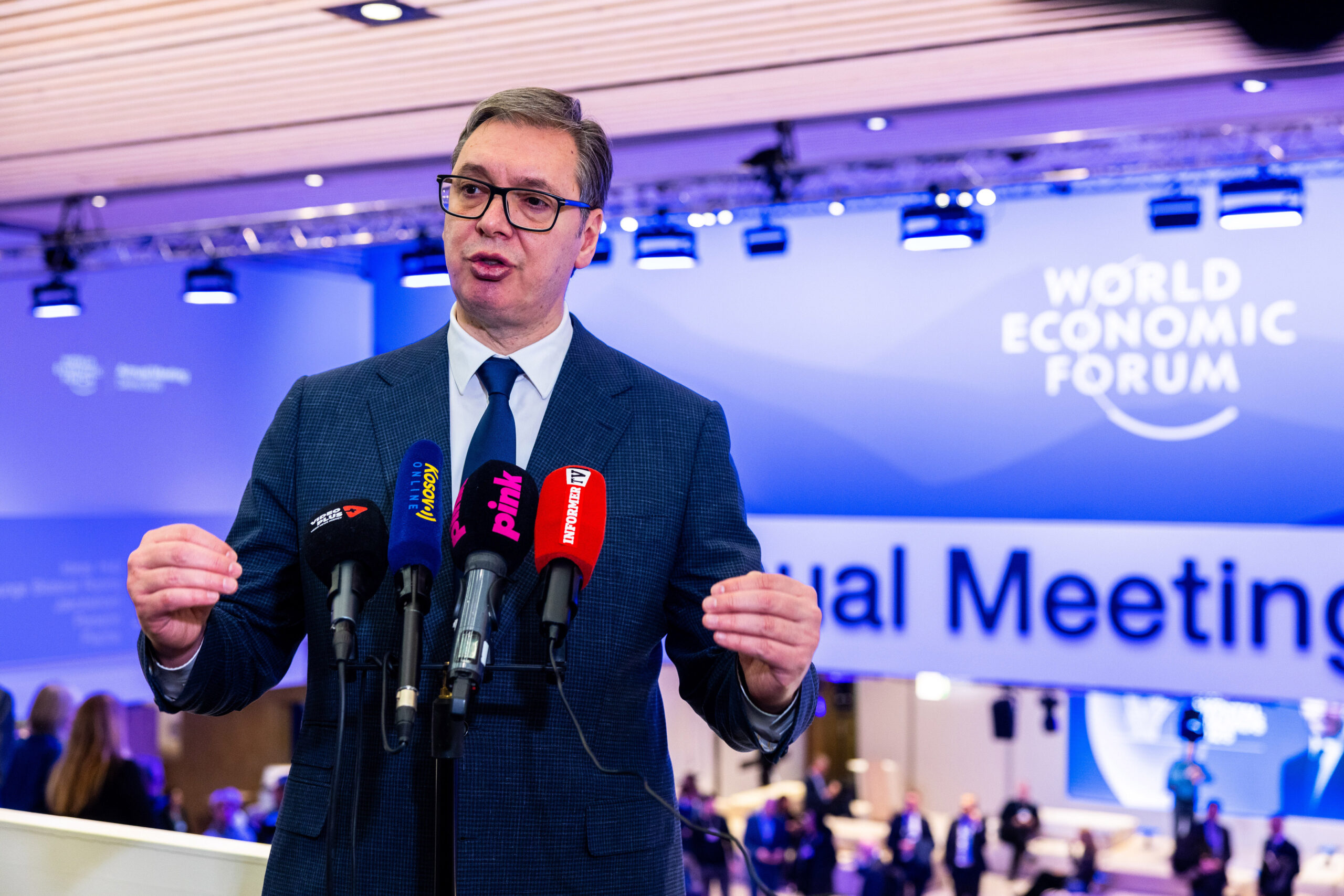Brussels – In Serbia, the wave of protest triggered by the tragedy of the collapse of the bus shelter at the Novi Sad train station on Nov. 1, 2024, killing15 people and injuring two seriously, has not subsided. After nearly three months of demonstrations in Belgrade and the country’s major cities — during which tension between student movements, authorities, and law enforcement escalated — a strike of “general civil disobedience” began today (Jan. 24).
Students and professors — some 5,000 faculty and academic staff joined student collectives — called on all Serbian citizens to join the protest and suspend activities. In addition to the faculties of the country’s major universities, which have been occupied for almost two months, some schools, non-governmental organizations, companies, stores, restaurants, and small businesses remained closed. As the Nova news agency reported, several media outlets, cultural institutions, state service unions, and city governments have joined the call, as have some categories, including doctors, lawyers, and farmers. Some opposition parties also announced protests and blockades for today.
Students are demanding full transparency in public projects–starting with the publication of the entire documentation on the renovation of the Novi Sad train station– the withdrawal of false accusations against those arrested during the first anti-government protests in November, and the filing of criminal charges for those responsible for the violence committed on protesters, in several cases people proven to be affiliated with the ruling party, the Serbian Progressive Party (SNS) of President Aleksandar Vucic. In addition, student collectives leading the protests are calling for the resignation of the prime minister, Miloš Vučević, and the mayor of Novi Sad.

Vucic, the first in the spotlight as the leader of the party in power in Belgrade for 13 years, has no choice but to counterattack. From the showcase of the World Economic Forum in Davos, he denounced the interference of “foreign agents from several Western countries” who are fueling the protests that have erupted in Belgrade. “We know this for a fact,” accused the president of the longtime candidate country for EU membership.
Vucic proposed holding a non-binding “advisory referendum” on his presidency. However, the opposition rejected the proposal, instead urging the establishment of a transitional government toward new regular elections.
Brussels is watching with concern the chaos that has erupted in Belgrade, which entered its 11th year since the start of EU accession negotiations on Jan. 21. European Commission spokesman for Enlargement, Guillaume Mercier, reiterated today that “freedom of assembly is a fundamental right of the EU, which must be protected and exercised peacefully and with full respect for the rule of law and public order.” The EU “continues to encourage all stakeholders who support European integration to contribute, through dialogue and compromise, to Serbia’s progress towards the path of accession to the EU,” Mercier continued.
A path that – as noted in the European Commission’s latest report on enlargement, well before the Novi Sad incident – remains rather complicated. The snapshot that Brussels took on Oct. 30 described Belgrade as “misaligned” with the strategic priorities of EU foreign policy, very close to Moscow, not constructive on the complex dialogue with Kosovo, and sluggish in the implementation of the rule of law reforms needed to be part of the European club. “The pace of negotiations” for Belgrade’s entry into the EU “will continue to depend on reforms on the rule of law and the normalization of Serbia’s relations with Kosovo,” Brussels said in the report.
English version by the Translation Service of Withub







